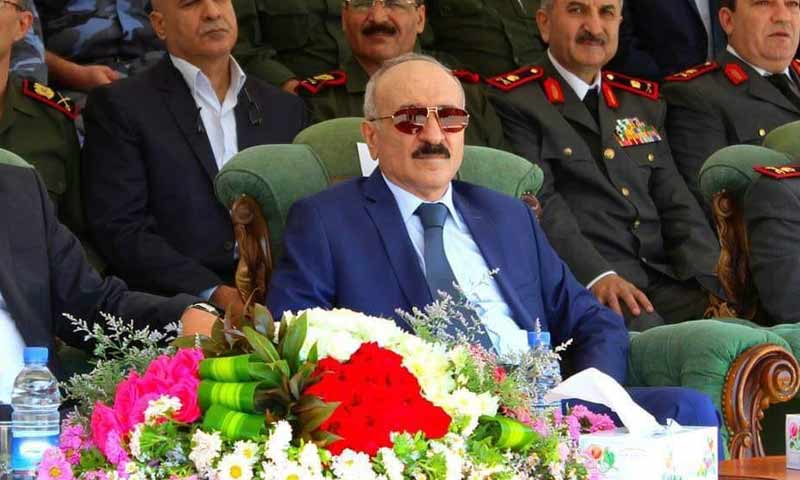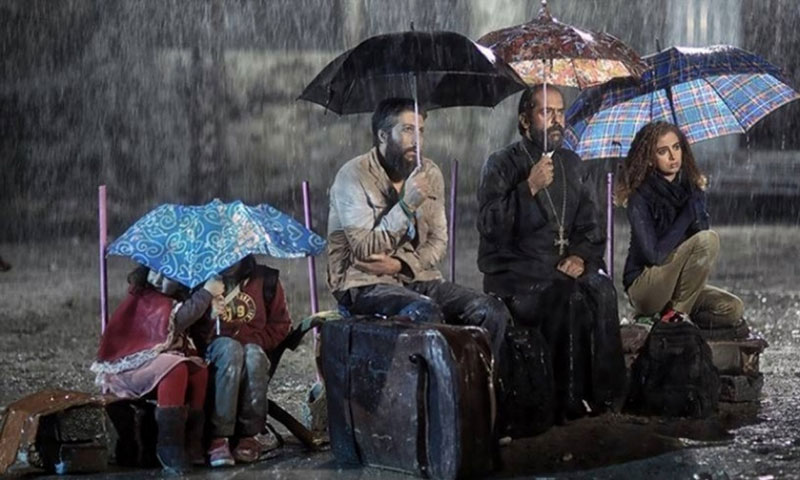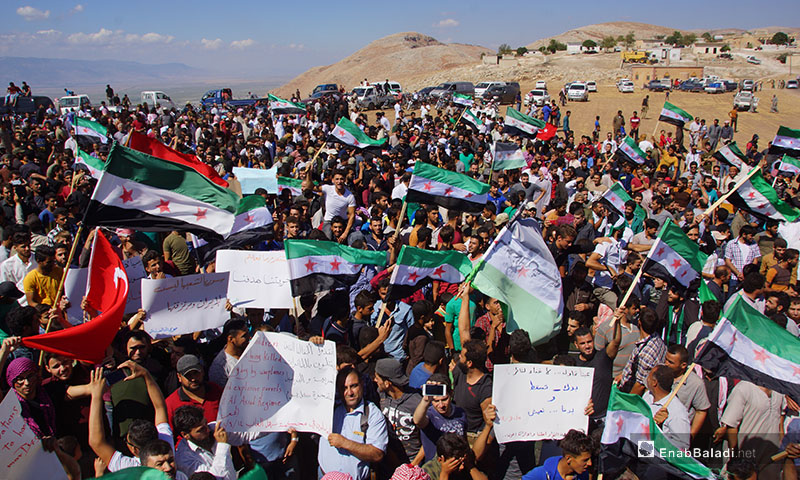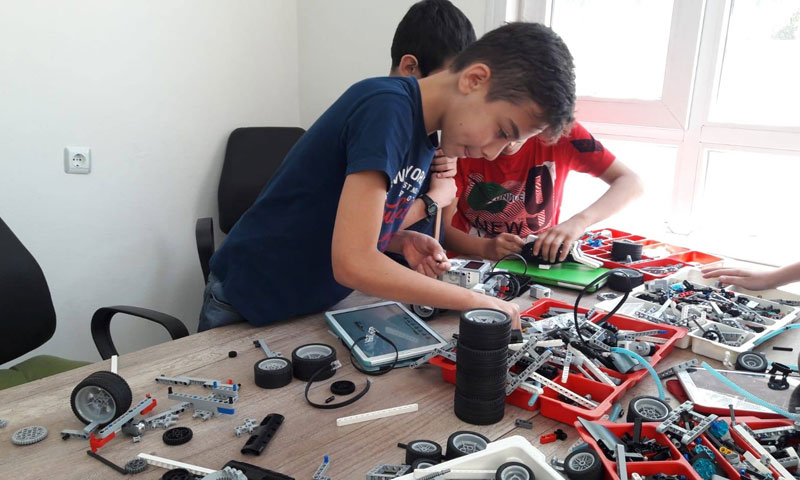Trapped in ‘Love’
Enab Baladi Issue # 88 – Sun, Oct. 27, 2013
Thousands of books and articles were written about the history and the concept of love. Anthropologists, historians, psychologists, philosophers and researchers such as Spencer, Mark Lester, Freud, Moller SR, Van de Field and others wrote about this subject. We appreciated their efforts; however, the essence of their researches was damaged because of their concept about love. Moreover, love is totally different from sex. They restricted the role of females in sexual relationships and ignored that true love cannot be limited to mean sex only.
Samar, a thirty-year-old woman, spends a second year without her husband, who is under arrest, and she is waiting for his release. While her husband is in detention, she is meeting many people. Some of them appreciate her patience. Others blame her for her waiting, which others consider it to be for the impossible, and advise her to leave her husband and start a new life. Nevertheless, some women are concerned that her beauty will vanish while she is waiting. Other women are sad about her bad luck and one is angry about her opinion on waiting. Someone from her family is practicing his authority and giving her lessons about how useless her waiting is.
Two years have passed since Amal’s husband was arrested. She does not know if he is in a good or bad condition. He was arrested for drawing a balance with two scales on chalkboard for his students in the class, symbolizing the government and its regime in one scale and the oppressed nation in the other. He pointed that justice and safety maintain equality between both scales; he was treated as an atheist for not believing in their dictatorship, and thus had to face his inevitable fate, jail.
Days have passed and Amal still lives in hope that her husband will return. She does not care about people’s talks. She tries her best to explain the real concept of true love, which is associated with faithfulness, and that it cannot be restricted or ended with a sexual relationship.
Amal told us about her suffering in the governmental departments each time she went to ask about her detained husband. Once, at the military court in Mezze, the colonel mocked her saying: “a woman does not ask about her husband in peaceful days; in war times you should forget him and continue your life.” At the military police station in Al Qaboon, the officer in charge of archiving names of arrested people threatened her that if she continues asking about him, he would arrest her as well, and accuse her of sharing in her husband’s ideas.
Regime forces stopped Amal at a checkpoint as she was on her way to Sednaya prison to ask about her husband there; she was asked to get out of the bus and to show her ID and the visitation permission; military personnel at the checkpoint mocked and laughed at her when they knew the purpose of her visit to the prison, and the charges of which her husband was accused of. The officer in charge tried to talk her out of waiting for her husband offering to provide “all her needs”; furthermore, he told her that she should be thankful for not having children from “that terrorist who will spend the rest of his life in jail”.
The officer promised her employment in a place close to him, despite the fact that they don’t hire females usually. She was also offered a house, a car, a fixed salary and tips as long as she is “offering her feminine body”.
Amal moves from one intelligence branch to another in search of her husband, taking threat from one, and harassment from another.
What Amal told us is only a part of what troubles her in the absence of her detained husband; Amal still holds hope that he will come back despite the painful feelings filling her heart whenever she thinks of a future without him, no matter what others may offer her.
if you think the article contain wrong information or you have additional details Send Correction
-
Follow us :
Most viewed
- Israel threatens Damascus via Jaramana
- Negotiations between SDF and Damascus: Agreement on generalities, disagreement on details
- Why Damascus remains silent about Netanyahu's threats?
- Syria awaits exceptional season in tourism sector
- Suspension of EU sanctions: Limited impact fails to meet recovery needs in Syria

















 A
A
A
A
A
A







 More Translated Articles
More Translated Articles